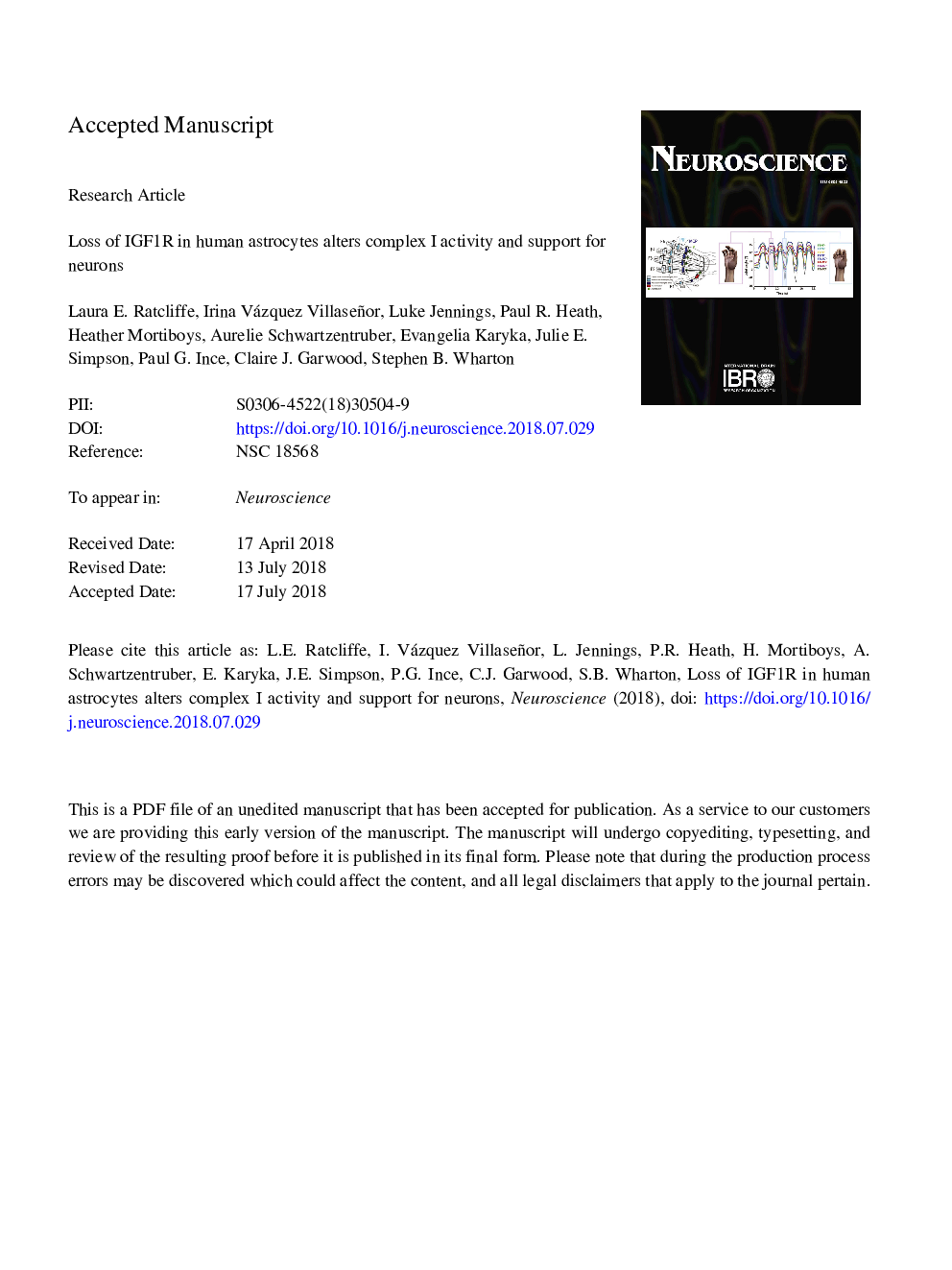| Article ID | Journal | Published Year | Pages | File Type |
|---|---|---|---|---|
| 8959215 | Neuroscience | 2018 | 30 Pages |
Abstract
The insulin/insulin-like growth factor 1 (IGF1) signaling pathways are implicated in longevity and in progression of Alzheimer's disease. Previously, we showed that insulin-like growth factor 1 receptor (IGF1R) and downstream signaling transcripts are reduced in astrocytes in human brain with progression of Alzheimer's neuropathology and developed a model of IGF1 signaling impairment in human astrocytes using an IGF1R-specific monoclonal antibody, MAB391. Here, we have established a novel human astrocyte-neuron co-culture system to determine whether loss of astrocytic IGF1R affects their support for neurons. Astrocyte-neuron co-cultures were developed using human primary astrocytes and differentiated Lund Human Mesencephalic Cells (LUHMES). Neurite outgrowth assays, performed to measure astrocytic support for neurons, showed astrocytes provided contact-mediated support for neurite outgrowth. Loss of IGF1R did not affect neurite outgrowth under control conditions but when challenged with hydrogen peroxide IGF1R-impaired astrocytes were less able to protect LUHMES. To determine how loss of IGF1R affects neuronal support MAB391-treated astrocytes were FACS sorted from GFP-LUHMES and their transcriptomic profile was investigated using microarrays. Changes in transcripts involved in astrocyte energy metabolism were identified, particularly NDUFA2 and NDUFB6, which are related to complex I assembly. Loss of complex I activity in MAB391-treated astrocytes validated these findings. In conclusion, reduced IGF1 signaling in astrocytes impairs their support for neurons under conditions of stress and this is associated with defects in the mitochondrial respiratory chain in astrocytes.
Keywords
Related Topics
Life Sciences
Neuroscience
Neuroscience (General)
Authors
Laura E. Ratcliffe, Irina Vázquez Villaseñor, Luke Jennings, Paul R. Heath, Heather Mortiboys, Aurelie Schwartzentruber, Evangelia Karyka, Julie E. Simpson, Paul G. Ince, Claire J. Garwood, Stephen B. Wharton,
